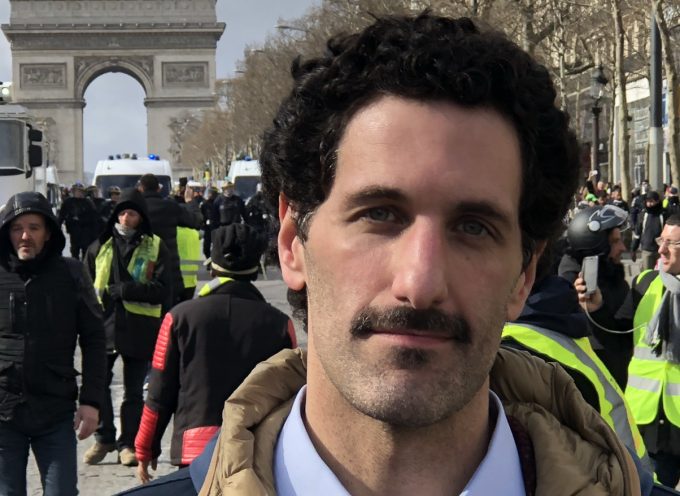Republished from the Saker blog
In Part 3 of this 8-part series I answered the question raised by that part's title: Why was a Cultural Revolution needed in already-Red China? To recap: China wanted something which the Eurozone has none of: participatory economic planning. China also wanted much more participatory democracy (political empowerment) at the local level and to move even further away from an all-controlling, imperious central state.
But why did this require a decade-long Cultural Revolution (CR)? The answer to that question is: all Red Guards, promoted to install the CR, weren't all red!
This article will explain something never even hinted at in Western (faux) histories of China: the differences between the two Red Guard factions the one on the left of the spectrum of socialist political thought, and the one on the right side of the spectrum.
This explains why the primary victims of the Red Guards were" the Red Guards! But that likely needs further explanation".
These party differences were so deep, so broad, so ingrained and so fiercely held that China's Great Proletarian Cultural Revolution is perhaps best conceived of as "China's Socialist Civil War". The CR truly was China's center and left against their right-wing" but we must remember that "right-wing" in a socialist context is still far, far to the left of the "right-wing" in a capitalist context. Of course, China also had some unrepentant "Western right-wing" citizens who refused to adopt socialism who were also involved.
But we live in a world today where many disbelieve in the concept of a hard and scientific "political spectrum". Many refute any sort of standardization of political thought, as if a person's political ideas could be so incredibly unique that they defy labeling of any sort, despite the obvious hindrance to understanding and solidarity this belief can't help but create. Given this widespread error, we should not be surprised that the Western Mainstream Media has no interest at all in fully describing the Chinese spectrum of battling forces during the CR; for them the CR is divided into murderous savages (the Party, the government, students) and totally-innocent victims (usually professors, intellectuals, and those forced to shovel manure instead of constantly talking it).
I will soon explain how Red Guards were the greatest victims of the CR, but to do so I must first dispense with the Western idea that China's CR was some sort of power-struggle and byproduct of a Mao-cult, as opposed to being a truly democratic event.
The CR's democratic bonafides are are proven by the fact that there was massive popular involvement. Conversely, the Eurogroup which decides the economic policies of the Eurozone is not democratic because there is extremely limited involvement in decision-making.
This is verified in The Unknown Cultural Revolution: Life and Change in a Chinese Village by Dongping Han, who was raised and educated in rural Jimo County, China and is now a university professor in the US. Han interviewed hundreds of rebel leaders, farmers, officials and locals, and accessed official local data to provide an exhaustive analysis of seeming unparalled objectivity and focus regarding the Cultural Revolution in China. Han was kind enough to write the forward to my brand-new book, I'll Ruin Everything you Are: Ending Western Propaganda in Red China. I hope you can buy a copy for yourself and your 300 closest friends.
"These mass associations (definition coming shortly) were formed largely in the spirit of free association, and enjoyed tremendous independence and freedom. They cut across clan and family lines. It was common for people from the same clan and same family to join different associations. People came together because of their political views. With few exceptions, all of the adult population belonged to one mass association or another." (emphasis mine )
The Chinese Socialist Civil War showed the one indispensable hallmark of producing a true & successful revolution: universal political participation. In Russia in 1917 or in Iran in 1979, everybody and I mean everybody talked politics all the time.
It should not be surprising that the opposite is true: in hugely reactionary cultures like the US or the UK serious political discussion is verboten among friends and family. This is the reason why far-right thinking dominates in these countries conservatism and traditionalism go unopposed. However, in China the far-right had been (quite properly) banned in 1949; therefore, the CR was a battle among "Chinese right-wing socialists""which shows how very much more advanced and evolved Chinese political discussion and culture is compared with Anglophone countries, where right-wing elements still are allowed to confuse, distort and champion horrid ideas.
The "mass associations" which Han refers to needs his explanation:
"I personally feel there is a need to distinguish between mass organizations and mass associations. The former term would be applied to the organizations like the militia, the Communist Youth League, women's association, workers' unions and the official Red Guards which were set up by the CCP and were official in nature. The latter term would refer to the independent Red Guard groups formed largely in the spirit of free association. " Both the rebels and the defenders of the Party leaders were called Red Guards. The rebels were called zaofan pai (rebel faction) while the defenders were known as the baohuang pai (loyalist or royalist faction)"."
This distinction is the essence of the CR: the conflict was between those who were pushed by Mao to criticize the Party in a never-before seen manner the Rebel Faction (associations) and those who opposed such criticism and changes the Loyalist Faction (organizations); both were "Red Guards", however.
(Note: You can view every article as one long page if you sign up as an Advocate Member, or higher).






